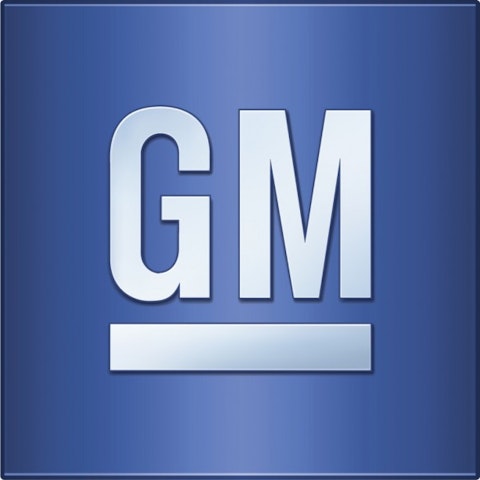Recently released China auto sales numbers spell out very different scenarios for some of the top automakers. General Motors Company (NYSE:GM), on one hand, continues to do well in the country. Sales for China’s best-selling automaker rose 7.9% in the first two months of the year.
That wasn’t the case for all automakers, though. Three of the big Japanese automakers — Toyota Motor Corporation (ADR) (NYSE:TM), Honda Motor Co Ltd (ADR) (NYSE:HMC), and Nissan (OTCBB:NSANY) — all experienced market share decreases for the first two months of the year in China. A main reason for this is the continuing territorial dispute between Japan and China which has led to increasing anti-Japanese sentiment in China.

Andrew: Hey Fools, Andrew Tonner here. I’m joined today by Brendan Byrnes, our industrials analyst for Fool.com.
Brendan, let’s take a look at one of the biggest drivers of the auto market, China. Specifically, the recent developments of GM in China. When you look at this story line, what’s going on?
Brendan: General Motors Company (NYSE:GM) continues to do very well in China. Over the first two months, January and February, increased sales by 7.9% versus last year.
What’s interesting to see is the big Japanese auto makers — Toyota Motor Corporation (ADR) (NYSE:TM), Honda Motor Co Ltd (ADR) (NYSE:HMC), Nissan — all had market share decreases. The reason for that is the continued fallout over this territorial dispute that they’re having with China right now.
Investors of those companies, and of General Motors Company (NYSE:GM) and Ford Motor Company (NYSE:F), need to keep an eye on that and how that’s going to affect them down the road, because right now there’s some anti-Japanese sentiment in China, which is not a good thing for those companies when you’re talking about the biggest auto market in the world now.
We don’t know Ford’s February numbers yet, but we know they’re coming off a great January in which they doubled their sales from the year before. They sold about 60,000 cars in January. General Motors Company (NYSE:GM) sold about 310,000 cars in January in China, so clearly about one-fifth as many cars for Ford, but that also creates opportunity.
They’re pumping $5 billion into Asia, building all sorts of factories. They want to become a big player here, and I really like their plan.
Getting back to General Motors Company (NYSE:GM), pretty solid with Buick, Cadillac down about 24% overall the first couple of months. There are reasons for that, but GM is clearly going to have to execute better with their goal of making Cadillac a major brand in the country by 2015.
It’s important to note with Asia that not all sales are created equal, in terms of profit. You have to have joint ventures, which takes about half the profit, so clearly you’re not getting the kinds of margins, but again when you’re talking about the world’s biggest auto market this is one that none of these auto makers can afford to miss out on.
That’s why I really like the domestic auto makers’ position right now, especially with what’s happening with the big Japanese auto makers.
We should mention that Volkswagen is right up there with General Motors Company (NYSE:GM), fighting it out for the market share lead. They’re definitely one to watch as well, as they try to take over the “World’s Largest Automaker” crown in a few years.
Overall, I think this bodes well for the big domestic automakers. I’m a shareholder of them. They remain my favorite picks in this sector, just because they’re so cheap right now and I still think they have room to run, even internationally.
The article How the Big Automakers Are Faring in China originally appeared on Fool.com and is written by Brendan Byrnes and Andrew Tonner.
Andrew Tonner owns shares of Ford. Brendan Byrnes owns shares of Ford and General Motors. The Motley Fool recommends Ford and General Motors. The Motley Fool owns shares of Ford.
Copyright © 1995 – 2013 The Motley Fool, LLC. All rights reserved. The Motley Fool has a disclosure policy.




